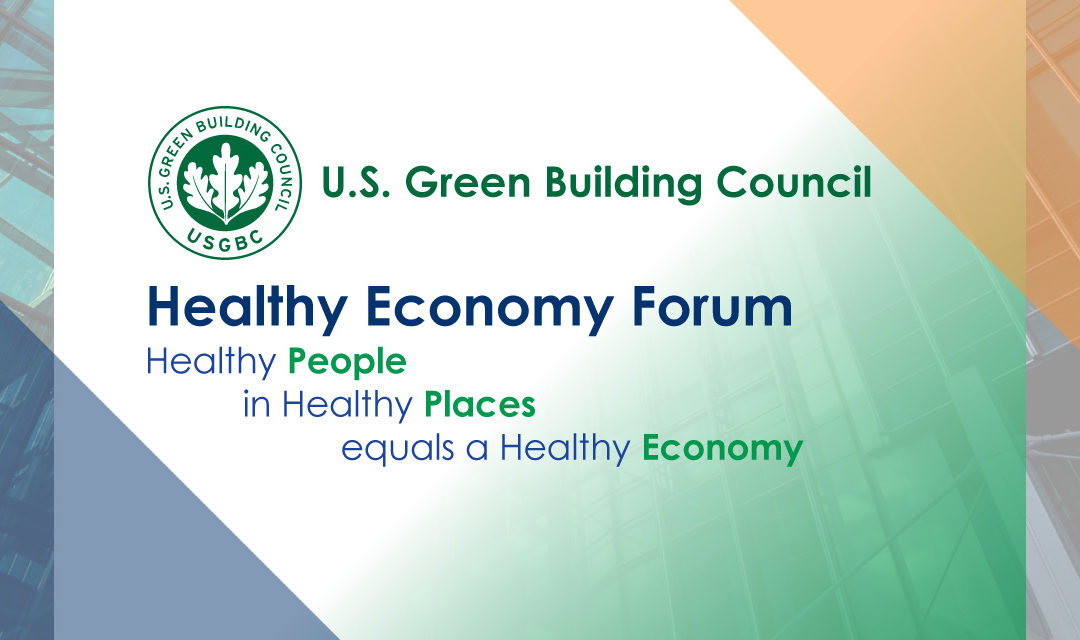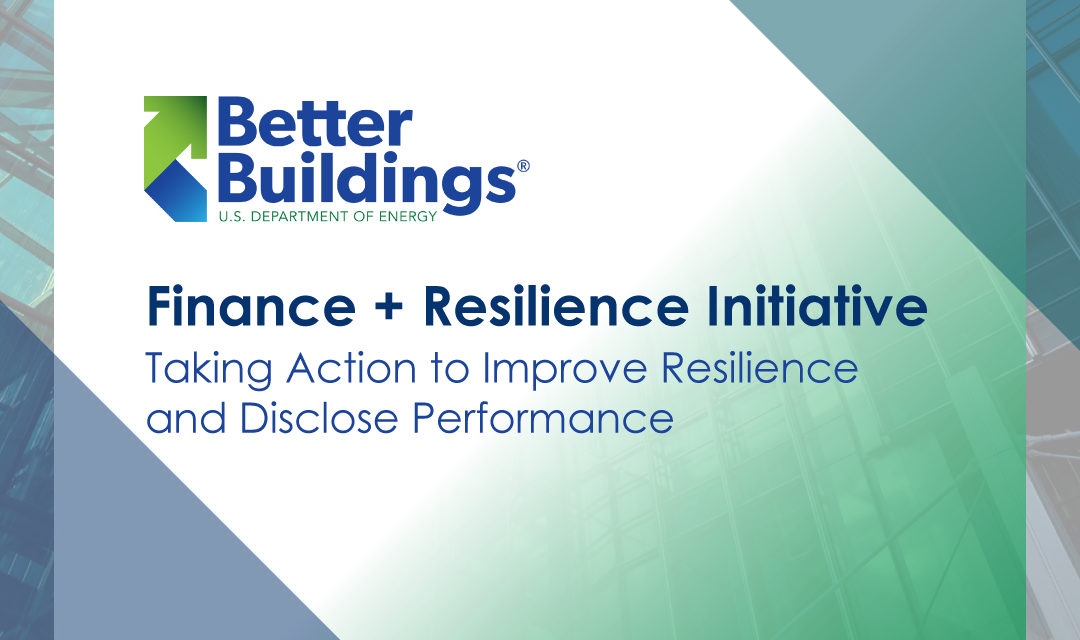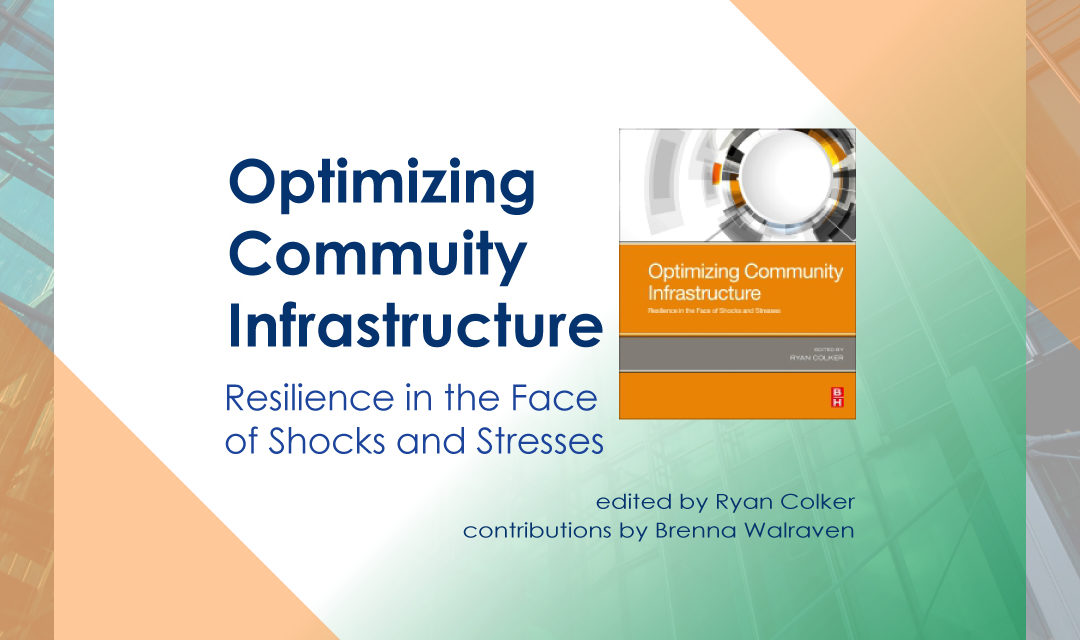
Jul 21, 2020 | Events, Homepage
Healthy Economy Forum by presented by USGBC
Healthy people in healthy places equals a healthy economy.
The impact of the global COVID-19 pandemic will be felt for years to come – on the economy, on people, and on our way of life. Join Corporate Sustainability Strategies and industry leaders as we share our knowledge on “The Business Case for Healthy Buildings in a Post-COVID Era.”
The world we return to might look nothing like the one we’ve left behind. To support the global recovery, our ideas must be relevant to people and scalable across different building types, new markets and diverse contexts throughout the world. This requires new steps, discipline of measuring our progress and disruptive thinking.
USGBC is outlining a series of actions and priorities that will support the global recovery effort and leverage the power of our community to shape a healthier future for all.
Building Operations Session: The Business Case for Healthy Buildings in a Post-COVID Era
Panelists
- Henry Chamberlain, President and COO, BOMA International
- Ben Myers, Vice President of Sustainability, Boston Properties
- Alex Spilger, Senior Vice President, Director of Sustainability, Cushman & Wakefield
- Simon Turner, Founder, Building Cognition
- Brenna Walraven, President and CEO, Corporate Sustainability Strategies
Date & Time
Wednesday, August 5, 2020
11:30 AM ET
More Information and Registration
Healthy Economy Forum by USGBC will answer questions such as:
- How will we build a healthier, more sustainable future for current and future generations?
- How can we enhance our current design, construction, and operational strategies to ensure our spaces are healthy?
- How will we remain resilient against future threats to our global health, like climate change?
- How do we communicate the risk, health, and safety of places where people live, work, learn and play?
- How can we ensure the trust people have in feeling safe and healthy in the spaces where they live, work, learn, and play?
- How do we increase confidence in healthy places through planning, measurement, and recognition?
- How do we demonstrate the health and economic impact of our spaces?
- How will we rebuild our economy and replace unprecedented job losses around the world?
- Which partner organizations or policymakers can join us on this vision? Who is missing from this conversation?
Full Schedule
Tuesday, August 4, 2020
11:00 AM ET Forum convenes
6:00 PM ET Forum adjourns
Wednesday, August 5, 2020
11:00 AM ET Forum convenes
6:00 PM ET Forum adjourns
More Information and Registration

Mar 18, 2020 | Events, Homepage
U.S. Department of Energy (DOE) Better Buildings Summit Finance + Resilience Initiative
Part 2 of the Finance + Resilience mini-series will focus on different mechanisms for financing resilience projects, reporting frameworks for disclosing resilience performance, and pulling everything into a resilience risk management plan.
Sectors
Commercial, Multifamily, Financial Services
Presenters
- Mike Doty, Director Energy Efficiency Lending, Greenworks Lending (LinkedIn)
- Guy Van Syckle, Senior Manager, Hannon Armstrong (LinkedIn)
- Brenna Walraven, President and CEO, Corporate Sustainability Strategies (LinkedIn | Twitter)
Date and Time
Tuesday, April 28, 2020
12:00PM -1:00PM Pacific Time
register
About the Finance & Resilience Initiative
Resilience is emerging as a critical issue for commercial buildings, particularly in light of recent disruptions from climate and weather events. Owners and operators of commercial properties are placing greater emphasis on improving the resilience of their assets and mitigating risk from natural disasters and other stressors. At the same time, financial markets are beginning to think more seriously about how to manage systemic resilience risk in portfolios of real estate assets.
Research shows that resilience and financial performance are closely linked. Investors, mortgage lenders, and insurers are increasingly concluding that climate and resilience risk can have a meaningful impact on financial returns and that managing this risk is a critical part of fiduciary duty. Building owners are putting resilience plans in place to preserve the value of their properties, protect occupants, and attract investment. However, resilience is a fluid topic, and many building owners are unsure where to start and what tools are available to help.
In response, the Department of Energy launched the Finance and Resilience Initiative in 2019. This effort brings together leading experts from finance, insurance, real estate, and other fields to foster clarity, collaboration, and guidance on emerging resilience issues and how they affect energy and financial performance in buildings.
About Better Buildings Initiative
Better Buildings is an initiative of the U.S. Department of Energy (DOE) designed to improve the lives of the American people by driving leadership in energy innovation. Through Better Buildings, DOE partners with leaders in the public and private sectors to make the nation’s homes, commercial buildings and industrial plants more energy efficient by accelerating investment and sharing of successful best practices.
learn more

Oct 1, 2019 | Articles, Homepage
We are grateful to have had the opportunity to contribute to the upcoming book, “Optimizing Community Infrastructure: Resilience in the Face of Shocks and Stresses.” This book is edited by Ryan Colker, Vice President, Innovation at International Code Council and Executive Director of Alliance for National and Community Resilience (ANCR), a national coalition working to provide communities with the tools necessary to holistically assess and improve their resilience.
Optimizing Community Infrastructure: Resilience in the Face of Shocks and Stresses examines the resilience measures being deployed within individual disciplines and sectors and how multi-stakeholder efforts can catalyze action to address global challenges in preparedness and disaster and hazard mitigation. The book provides a theoretical framework to advance thinking on creating resilient, inclusive, sustainable and safe communities. Users will find an accurate and up-to-date guide for working on the development, implementation, monitoring and assessment of policies, programs and projects related to community resilience.
- Provides updated information on resilience, especially on infrastructure, finance, land use, standards and policies
- Includes case studies that illustrate how communities have increased their resilience to natural and other disasters
- Analyzes the institutional, political, social and economic dimensions of resilience at the community level
- Illustrates the interdependencies and interconnectedness of infrastructure systems and how community resilience relies on a holistic approach
- Examines responses to emerging risks associated with climate change
More Information



